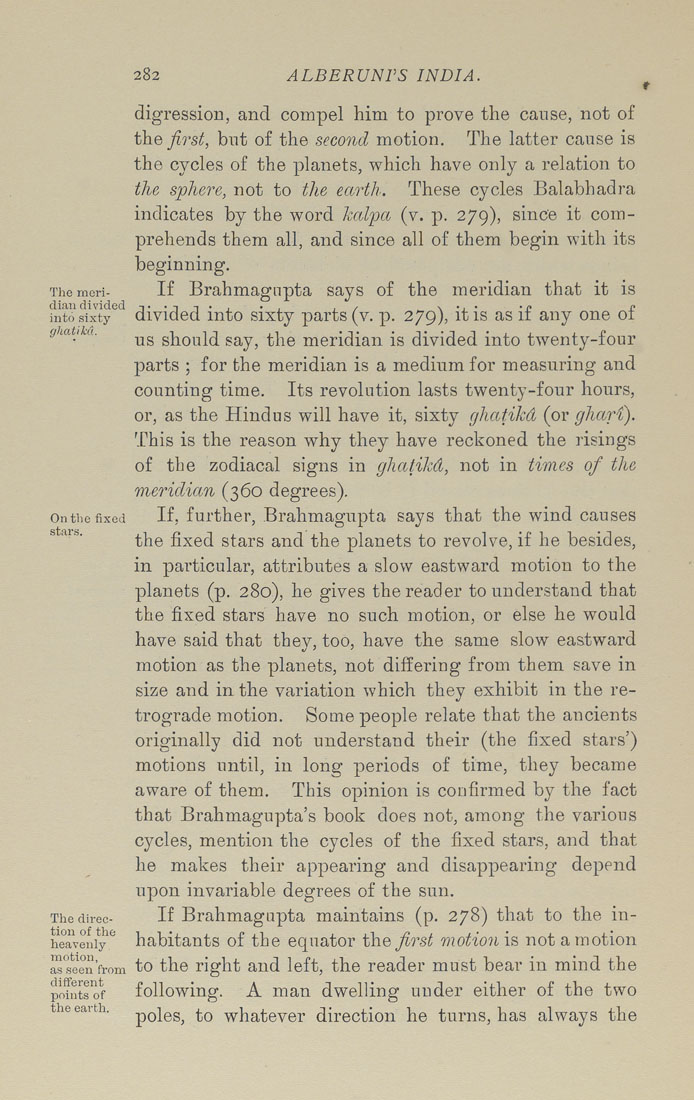Bīrūnī, Muḥammad ibn Aḥmad, Alberuni's India (v. 1)
(London : Kegan Paul, Trench, Trübner & Co., 1910.)
|
||
|
|
|
|
| Page 282 |

282 ALBERUNPS INDIA. digression, and compel him to prove the cause, not of the first, but of the second motion. The latter cause is the cycles of the planets, which have only a relation to the sphere, not to the earth. These cycles Balabhadra indicates by the word kalpa (v. p. 279), since it com¬ prehends them all, and since all of them begin with its beginning. Thomcri- If Brahmagupta says of the meridian that it is into sixty'^ divided into sixty parts (v. p. 279), it is as if any one of giaya. ^^ should Say, the meridian is divided into twenty-four parts ; for the meridian is a medium for measuring and counting time. Its revolution lasts twenty-four hours, or, as the Hindus will have it, sixty ghatikd (or ghari). This is the reason why they have reckoned the risings of the zodiacal signs in ghatikd, not in times of the meridian (360 degrees). Ontbefixed If, further, Brahmagupta says that the wind causes the fixed stars and the planets to revolve, if he besides, in particular, attributes a slow eastward motion to the planets (p. 280), he gives the reader to understand that the fixed stars have no such motion, or else he would have said that they, too, have the same slow eastward motion as the planets, not differing from them save in size and in the variation which they exhibit in the re¬ trograde motion. Some people relate that the ancients originally did not understand their (the fixed stars') motions until, in long periods of time, they became aware of them. This opinion is confirmed by the fact that Brahmagupta's book does not, among the various cycles, mention the cycles of the fixed stars, and that he makes their appearing and disappearing depend upon invariable degrees of the sun. Thedirec- If Brahmagupta maintains (p. 278) that to the in- heaveniy'^ habitants of the equator the first motion is not a motion Sseen'from to the right and left, the reader must bear in mind the points'of following. A man dwelling under either of the two ^^^^ ^- poles, to whatever direction he turns, has always the |
| Page 282 |







